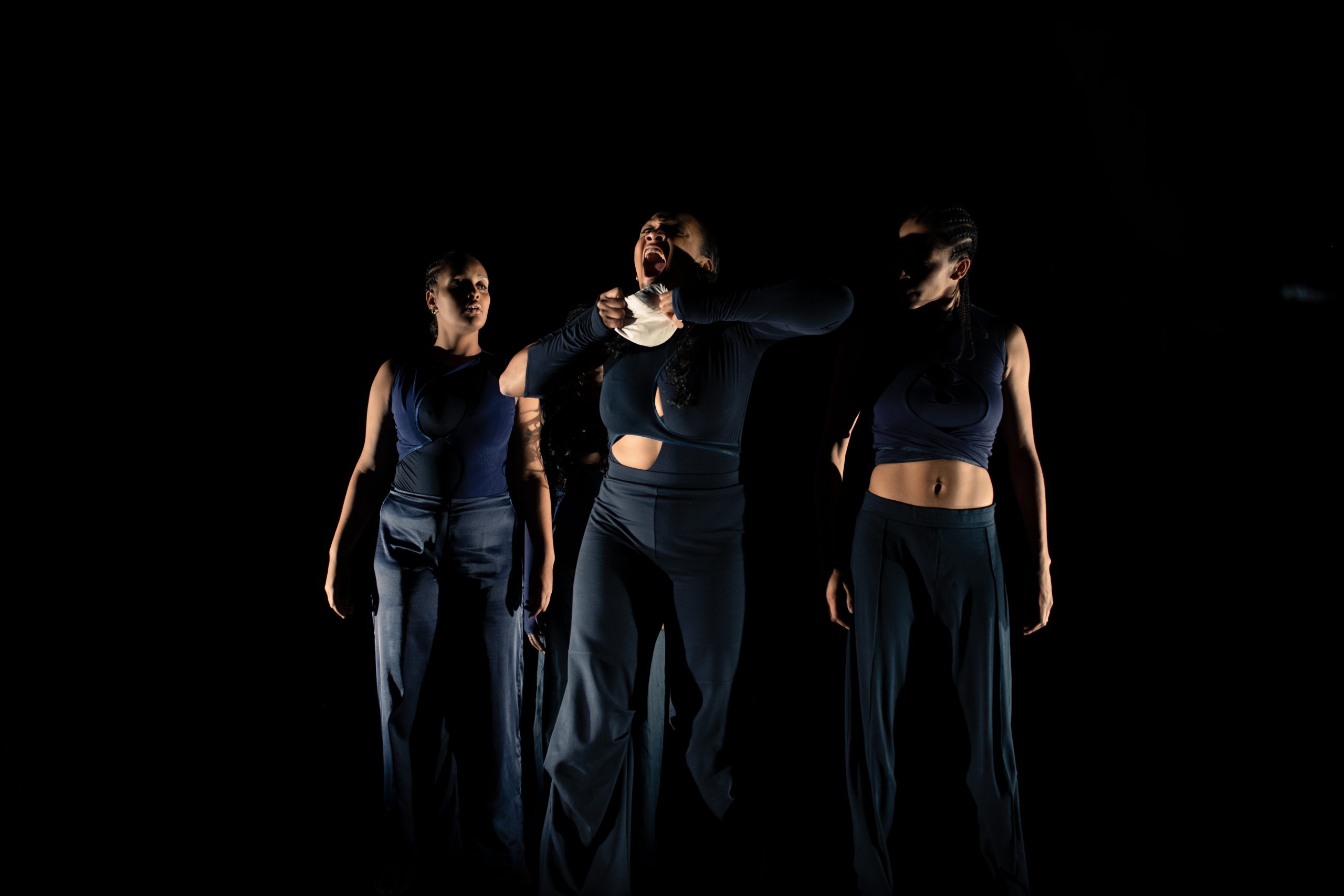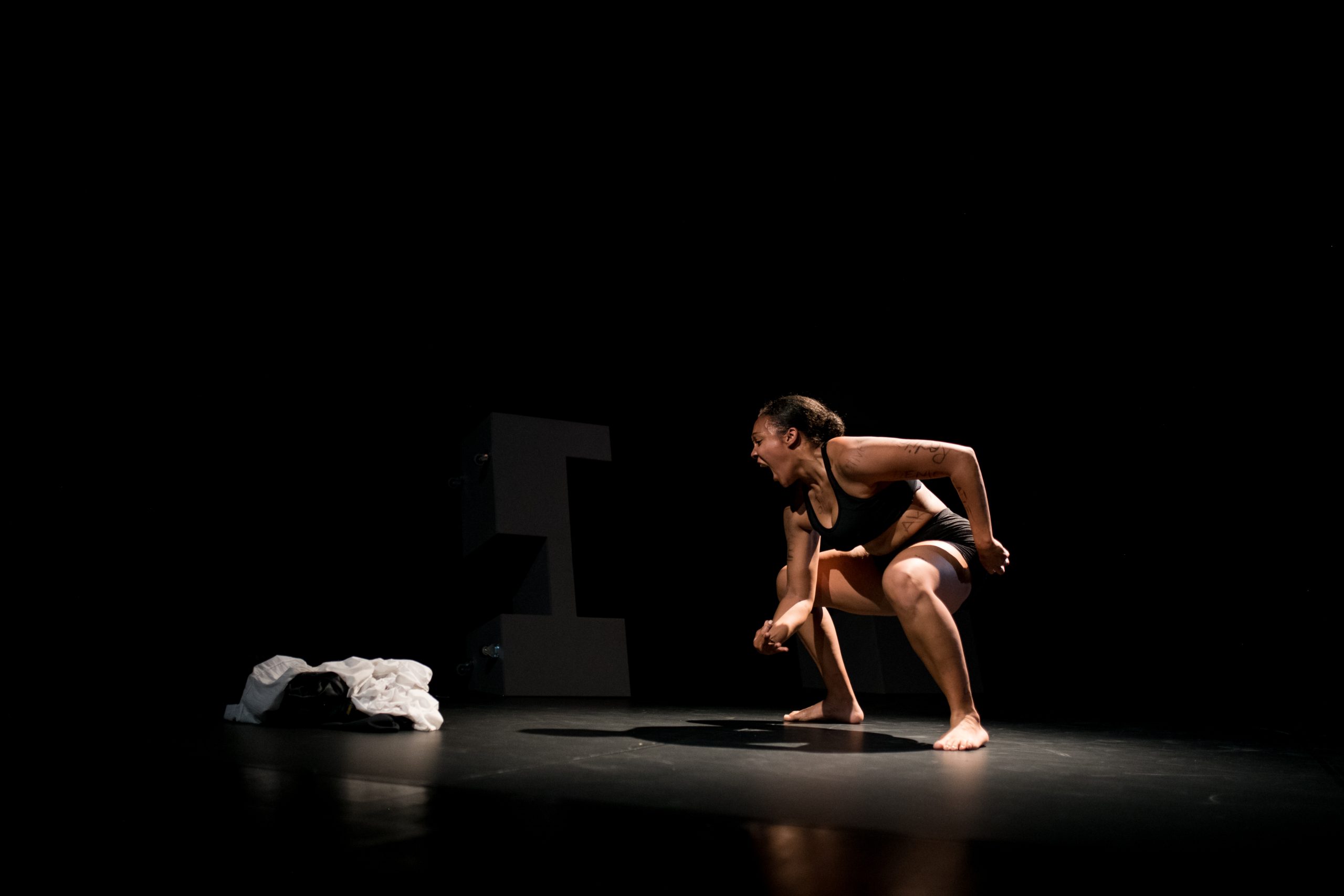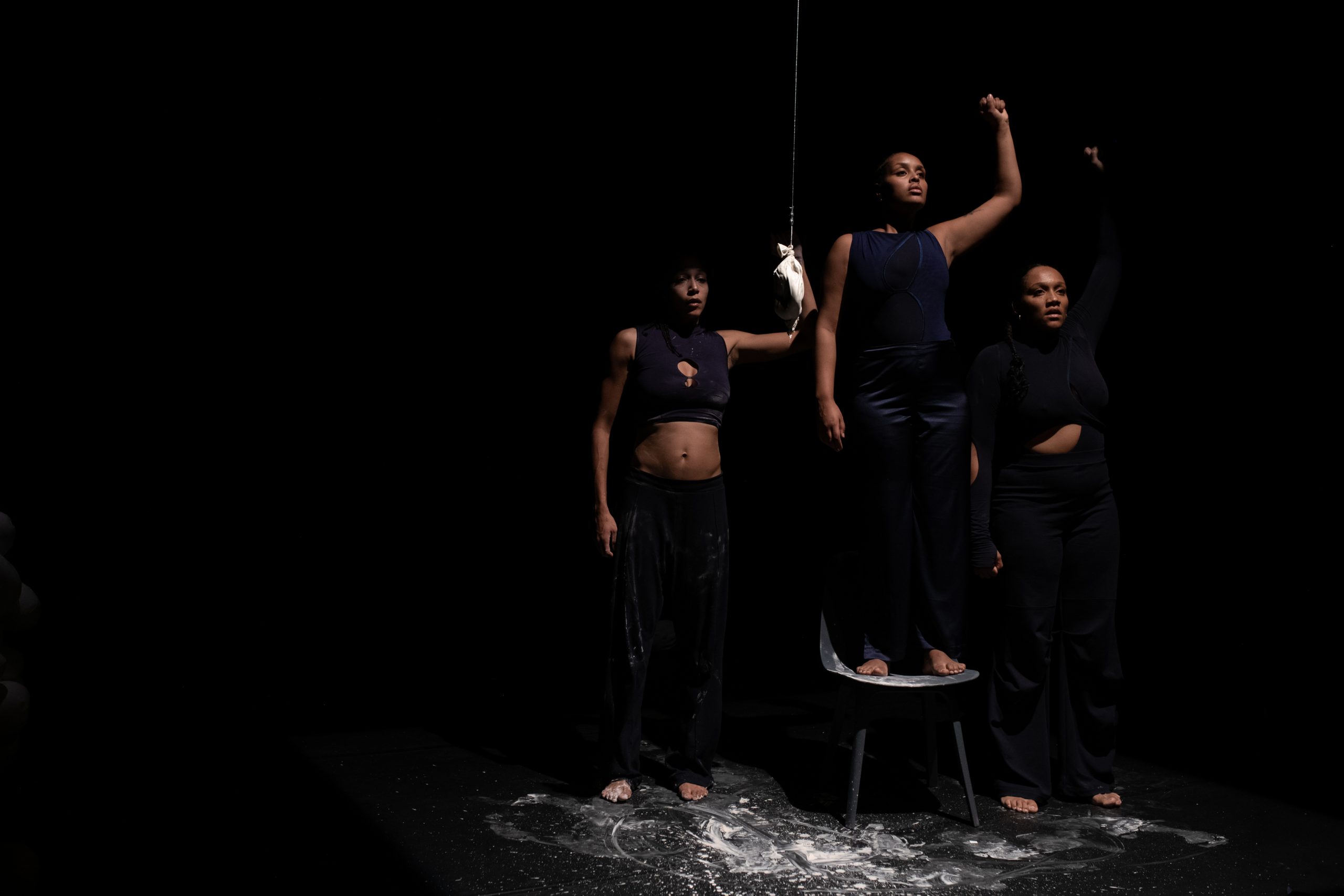Self-described as Switzerland’s next generation in dance, Company MEK is proving to be at the forefront of collaborative creative practice that strips back, subverts, and exceeds the limits of European dance. Learning about Muhammed Kaltuk and his company’s research trip to Senegal enlivened me and gaining insights into the company’s ethos, the ways in which they allow the human form to negotiate transformative movements and escape patterns and habits that have been perpetuated in European dance, recalled an appreciation that I have always had for this artform and its inquisitive and daring nature.
Company MEK spent two weeks in Senegal participating in a programme called 100% Sabar at the École des Sables. Founded by Germaine Acogny and Helmut Vogt in 1996, École des Sables teaches the Acogny technique which is rooted in traditional African dance and focuses on embodiment, connection, and collective movement. Germaine Acogny is seen as the founder of African contemporary dance and embraces pan-African ideals in her work. Responding to the late Léopold Sédar Senghor’s theory of Négritude, Acogny has pushed to solidify African culture and identity on the continent and beyond.

As a Swiss company, Company MEK, namely the founder Muhammed Kaltuk and choreographers and dancers Anna Chiedza Spörri, Sabrina Gifti Tekako and Earle Garnette, were searching for techniques that fall outside of the Eurocentric norm to reconnect with dance and step outside of their creative and personal comfort zones. Each dancer has a background in Hip Hop and like Germaine Acogny, they are redefining contemporary dance in a considered and curious way. The company exchanged their knowledge and techniques with several creative practitioners such as Zimbabwean choreographer Yama Wade and musical artist Ndeye Seck who taught them the art of percussion. They learnt Sabar, a traditional Senegalese dance from Fall Papouze at the Louga School of Dance, exploring the body and its languages that take root in multiple places at once.
Dance is a catalyst of integration, and it allows those who partake in it to explore the intersections of their identities and participate in a perpetual staging and restaging of imagined worlds. Chiedza Spörri felt that this trip to Senegal allowed her to address her Zimbabwean roots as well as blackness and identity as they pertain to her own practice while Kaltuk further developed a sense of social critique through movement that questions and transgresses the exclusivity and lack of diversity in cultural institutions. Tekako engaged in self-exploration towards a versatility that is grounded in tradition and aware of the influence that African dance styles have had on contemporary movement today. Dance creates a very specific social space that reinforces personal and collective exploration and understanding. We understand the abilities and limits of our own bodies and minds while immersing ourselves in a perpetual process of re-anchoring in multiple contexts that individuals shape in constant interaction. In this way, we can explore the various registers of our identity while understanding the importance of cultural regeneration. This is clear in Company MEK’s process where growth and connection are valued and sought-after outcomes in their creative practice.
There is a restlessness and curiosity about the company, they seem to be in continuous pursuit of new knowledge, new methods and new understandings which makes them unique in the world of dance. While there are a few companies that are standing at the threshold of newness in dance such as Company MEK’s inspirations, Dada Masilo and her company, Nederlands Dans Theatre and Crystal Pite’s company Kidd Pivot, many contemporary dance companies are steeped in European classicality and tradition and have not quite managed to forge new paths that are driven by unaccustomed narratives and forms. The company is influenced by a multiplicity of artists and dancers from Nina Simone and Stromae to Usher and Missy Elliott. Like all these artists and performers, the dancers of Company MEK refuse to be pigeonholed and have created a sense of powerful immediacy in their movements and social critique that are so characteristic of contemporary art.

Situated in a current geopolitical context, their recent works Territory and Father Politics are just two examples of the company’s corporeal translation of their life experiences. Each piece questions the naturalized systems of society in a way that incorporates various art forms and draws on the creative expression of each participant beyond their abilities in dance. Chiedza Spörri straddles the lines of dancer, choreographer, dramaturg, and writer, producing the text for Territory that reads:
“it’s nothing more than a simple line.
We have fought wars for this line
we let children die for this line
we let them drown for this line
for an illusion.”
While founder Muhammed Kaltuk addresses the experience of growing up in Switzerland to a Turkish family by taking “a critical and comprehensive look at the current societal state of Switzerland” and working with dancers and their individual experiences to express a stance on issues including police brutality, sexism, racism, Islamaphobia and xenophobia.
It seems that the company’s research trip to Senegal has confirmed, both individually and collectively, that dance is their medium, their way of communicating and understanding themselves and their surroundings. They described a profound class that they had on the beach in Toubab Dialaw led by Alesandra Seutin where “we were led by the water, followed the waves and sand and all of it in silence. We felt we were alone with our thoughts but together in movement.” Company MEK epitomizes the role of the body and kinaesthetic connection in deepening awareness of entanglement. They use the body and its abilities to depict the duplicity of our existence and perhaps that is what is characteristic of their practice. Unlike most classical European dance forms, there is an adamance to depict the real, embrace the natural lines of the body and show its sharp edges, to depict the fluid capability in movement but also the point at which it ends. Movement is their self-generated language through which transformation is communicated and they are thinking about dance and the world in different and exciting ways.
Company MEK is currently on a European tour with their pieces Father Politics and Five and their upcoming production Raising Karen’s Children is scheduled to open in Basel in May of this year. Chiedza Spörri is currently on a Swiss tour with her piece Perspektive and Tekako is returning to Senegal for another programme with École des Sables. Following their trip to Senegal, they hope to work with institutions and dancers across the globe to develop an interdisciplinary practice and generate platforms for continuous exchange.
This story is produced in the context of an editorial residency supported by Pro Helvetia Johannesburg, the Swiss Arts Council.




















































